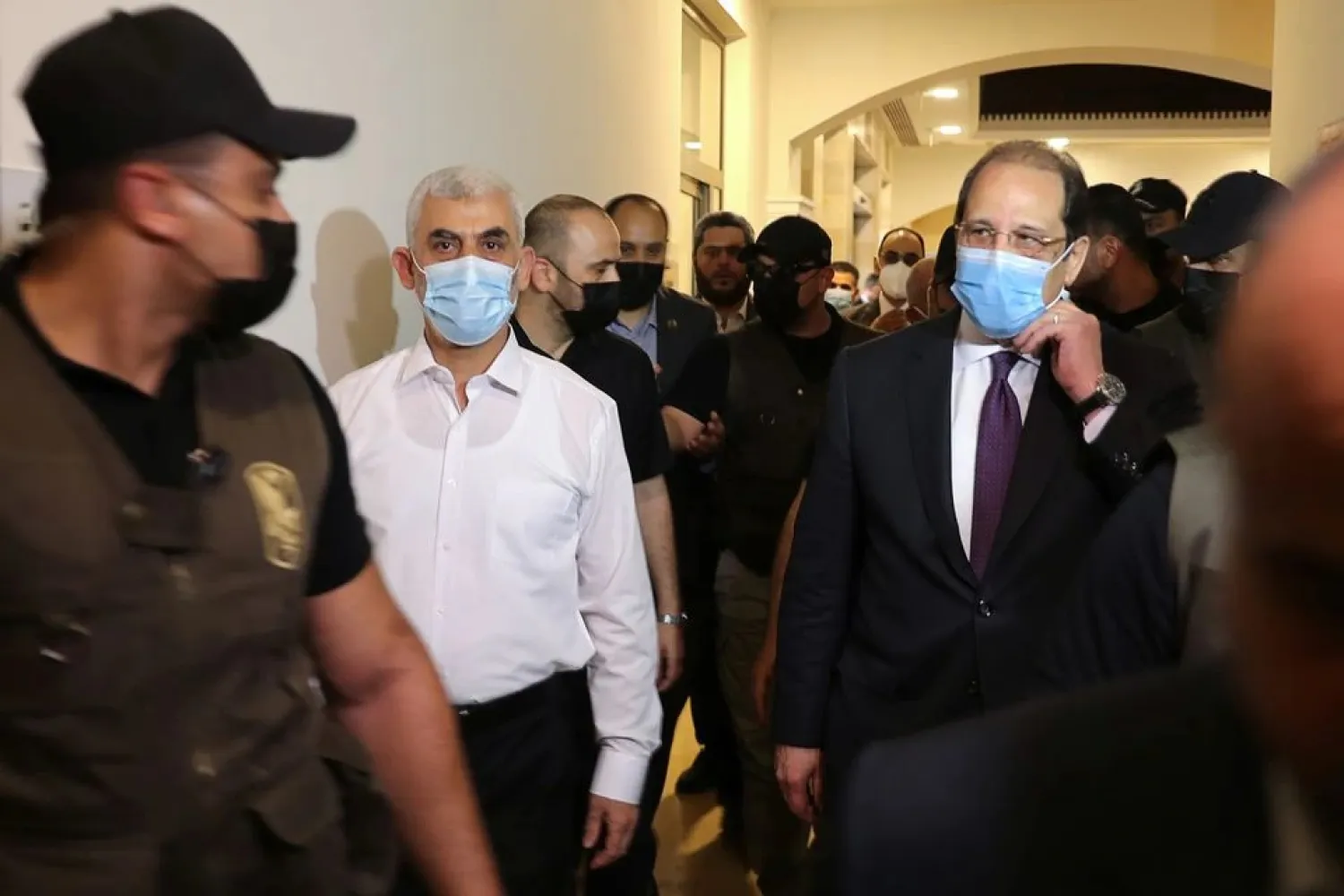Egypt’s intelligence chief met Hamas leaders in Gaza on Monday to try to bolster a ceasefire between the Palestinian militant group and Israel and to discuss reconstruction plans following the recent hostilities, Egyptian and Palestinian officials said.
The visit was the first by an Egyptian intelligence chief to the enclave since the early 2000s.
“The discussion is focused on ways to cement the calm and Gaza reconstruction plans following the recent Israeli aggression,” said a Hamas official, who asked not to be named.
Hamas officials, led by Gaza chief Yehya Al-Sinwar, would urge Cairo to pressure Israel to stop “its assaults against our people in Jerusalem and Sheikh Jarrah,” he said.
Eleven days of fighting between Israel and Hamas erupted on May 10 amid Palestinian anger at Israeli police raids around the Al-Aqsa mosque compound in Jerusalem and plans to evict Palestinians from the Sheikh Jarrah district of the city to make way for Jewish settlers.
Gaza medical officials said 253 Palestinians were killed during the fighting. Palestinian rockets and missiles killed 13 people in Israel.
Large posters of Egyptian President Abdel Fattah al-Sisi and Egyptian flags decorated streets across the enclave to greet intelligence chief Abbas Kamel. Hundreds of people lined up outside the entrance to Gaza waving Egyptian flags as his motorcade drove by.
Kamel’s visit is seen as an effort by Cairo to regain a more vital role in mediation between Israel and Hamas and revive the stalled Israel-Palestinian peace process.
Sisi directed Egyptian officials to continue efforts and meetings to solve the problem of prisoners and missing people between Israel and Hamas, Egypt’s state news agency MENA reported on Sunday.
Following the meeting with Kamel in Gaza, Sinwar said “there is a real chance for progress to be made” on resolving the issue of prisoners, though he added that Hamas demanded those negotiations be held separately from the ceasefire talks.
Kamel was expected to announce plans by Cairo to fund a housing project in the territory, Hamas sources said. Egypt has said it would allocate $500 million to fund the rebuilding of devastated areas in Gaza.
Gaza’s housing ministry said 1,500 housing units were completely destroyed during the fighting, another 1,500 housing units had been damaged beyond repair, and 17,000 others suffered partial damage. A ministry official put the cost of rebuilding at $150 million.
On Sunday, Kamel met in Jerusalem with Israeli Prime Minister Benjamin Netanyahu. Netanyahu said his meeting dealt with regional security issues and ways to prevent Hamas from siphoning off civilian aid to strengthen its capabilities.
Kamel also met Palestinian President Mahmoud Abbas in Ramallah on Sunday and handed him a message from Sisi affirming Cairo’s support for Palestinians and Abbas, MENA said.









